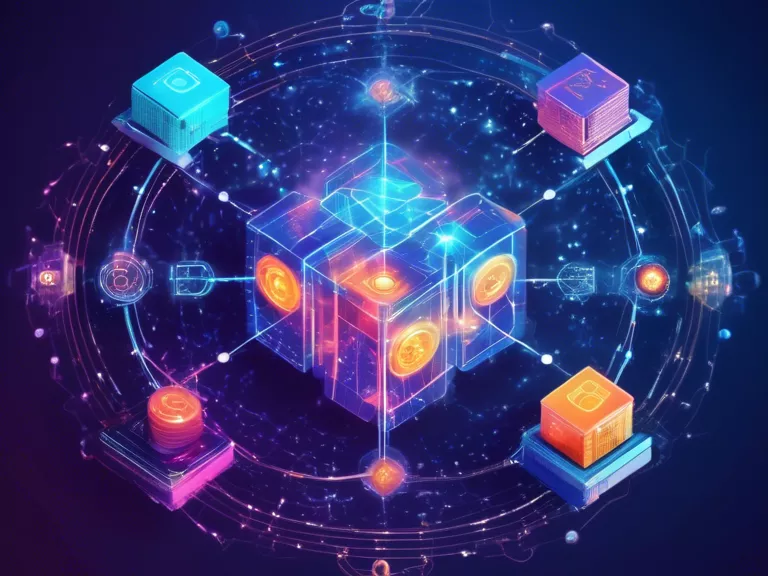
Introduction
Blockchain technology has revolutionized the way we perceive and conduct transactions in the digital age. Originally developed as the underlying technology for cryptocurrencies like Bitcoin, blockchain has since evolved into a versatile tool with applications across various industries. In this article, we will explore how blockchain is transforming the future through its magical innovation.
The Power of Decentralization
One of the key features of blockchain technology is its decentralized nature. Traditional centralized systems rely on a single point of control, making them vulnerable to cyber attacks and manipulation. In contrast, blockchain operates on a distributed network of nodes, ensuring transparency, security, and immutability of data. This decentralized structure eliminates the need for intermediaries, reducing transaction costs and increasing efficiency.
Smart Contracts and Automation
Blockchain technology enables the creation of smart contracts, which are self-executing contracts with the terms of the agreement directly written into code. Smart contracts automatically execute transactions when predefined conditions are met, eliminating the need for intermediaries and streamlining processes. This automation not only saves time and resources but also reduces the risk of errors and fraud.
Enhanced Security and Privacy
Blockchain's cryptographic algorithms ensure the security and privacy of data stored on the network. Each block in the blockchain is linked to the previous block using cryptographic hashes, making it virtually impossible to alter the data without consensus from the network. This tamper-proof feature enhances data integrity and protects sensitive information from unauthorized access.
Supply Chain Management
Blockchain technology is revolutionizing supply chain management by providing transparency and traceability throughout the entire supply chain process. By recording each transaction on the blockchain, stakeholders can track the flow of goods from the source to the end consumer. This increased visibility helps to identify inefficiencies, reduce fraud, and improve overall supply chain efficiency.
Tokenization and Digital Assets
Blockchain technology has enabled the tokenization of assets, allowing for the representation of physical assets as digital tokens on the blockchain. This tokenization opens up new possibilities for fractional ownership, increased liquidity, and simplified asset transfer. Digital assets can represent anything from real estate and art to intellectual property rights, unlocking new ways to invest and trade assets.
Conclusion
In conclusion, blockchain technology is revolutionizing the future through its magical innovation. From decentralized networks to smart contracts and enhanced security, blockchain is reshaping industries and creating new opportunities for businesses and individuals alike. By embracing blockchain technology, organizations can streamline processes, increase transparency, and drive innovation in the digital economy. The future of blockchain looks promising, and its transformative power will continue to shape the way we interact and transact in the years to come.